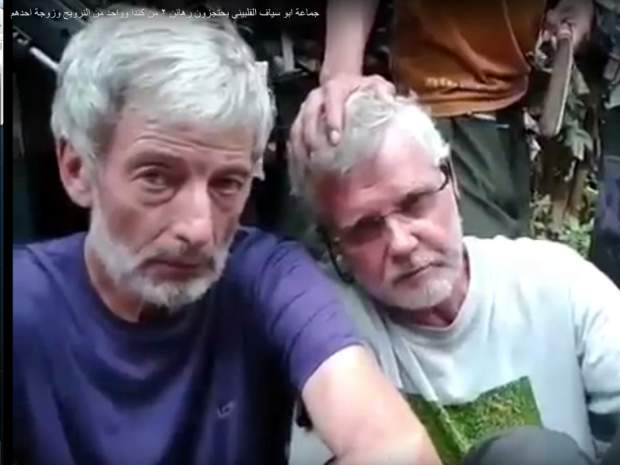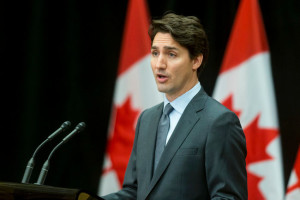Ransom Payments: A Double-Edged Sword
 Robert Hall and John Ridsdel, two Canadians who were captured by the terrorist group Abu Sayyaf
Robert Hall and John Ridsdel, two Canadians who were captured by the terrorist group Abu Sayyaf
Kidnapping foreign citizens in exchange for ransom money has become one of the key methods of financing and fuelling terrorism around the world. The debate surrounding this issue is complex due to its unique moral dimension, since countries have both a duty to protect the lives of their citizens, as well as a societal obligation to ensure the peace and security of the world. However, the larger question at hand persists regardless of whether a country advocates against ransom payments or concedes to terrorist demands. The main issue is that Western countries overtly perpetuate terrorism by means of economic agreements and trade deals. Put simply, Western governments wittingly sustain terrorist activities and are not on any fast track to put it to rest anytime soon.
Just this past April, a Canadian man by the name of John Ridsdel was beheaded after being kidnapped and held hostage by the extremist group Abu Sayyaf in the Philippines. As in many similar cases, Ridsdel’s killing was a result of a ransom deadline that had not been met, though the Canadian government had been fully aware of the payment demand. As is stipulated by the Canadian Criminal Code, no person, either in Canada or as a Canadian citizen outside of the country, may engage in financial transactions or negotiations with a terrorist group.
Following the killing of Ridsdel, Canadian Prime Minister Justin Trudeau voiced his concerns on the

matter, forcefully arguing that “Canada does not and will not pay ransom to terrorists, directly or indirectly.” Trudeau shared his view with British Prime Minister David Cameron, solidifying Britain and Canada’s joint commitment to end the practice of ransom payment. The joint expression of the two Prime Ministers was an effort to persuade other political leaders to follow suit, with Trudeau outlining the negative repercussions effected by such acts. Not only does paying ransom fund terrorism, but it “would endanger the lives of every single one of the millions of Canadians who live, work, and travel around the globe every single year.”
Despite Trudeau’s explicit statement, there is no simple answer to this debate, and the Canadian government, regardless of its claim of avoiding paying ransom, is not without its share of speculation. As former director of the consular affairs bureau in Foreign Affairs, Gar Pardy, wrote: “if a kidnapped person has been released, then a ransom of some sort has been paid.” Countries such as Canada and the United States, who declare their rejection of payment for ransom, often are suspected of engaging in some sort of negotiation with terrorist groups for the release of their citizens. For instance, the Canadian government has come under recent scrutiny for its suspected financial involvement in the release of Robert Fowler and Louis Guay, two Canadian diplomats who were kidnapped in Africa by an Al Qaeda group in 2009. A letter was found that alleged Canada had paid approximately $1.1 million for the release of two hostages.
The issue of ransom payments not only lies within the questionable acts of political hypocrites, but also within the lack of convergence on either side of the debate. While some countries can at least lay claim to hypocritical innocence, there are still many European countries that favour short-term political success over long-term systemic security. While European governments deny any payments made to terrorist groups, The New York Times estimates that Al Qaeda and its affiliates pulled in at least $125 million in revenue from ransoms since 2008. The governments of France, Spain, and Switzerland pay the largest amounts in ransom, and this form of payment attributes to the most significant source of terrorist funding today.
In a speech delivered by David Cohen, the Under Secretary for Terrorism and Financial Intelligence in the US Treasury, the self-sufficient nature of Al Qaeda’s offshoot groups was stressed. Through kidnapping for ransom, these extremist groups raise their own funds which are directed towards recruiting new members, acquiring weapons, and staging fatal attacks. Cohen articulates that kidnapping for ransom is a self-perpetuating cycle where “each transaction encourages another transaction,” and provides incentive for further kidnapping. He argues that empirical evidence demonstrates that terrorists distinguish between governments that do and do not pay ransom, and will choose their hostages accordingly. In the end, Cohen argues that a “no concessions” policy is the ultimate victor, despite its plain utilitarian approach. The United States is willing to sacrifice innocent human lives, whereas countries such as France and Spain are unable to make that sacrifice, due to the domestic pressure they claim to face. However, the United States rightly views the paying of ransoms as a source of sustenance for terrorist organizations that are committed to bringing about the death of more innocents. Thus, one of the most effective ways to break the cycle is to fully end the concessions put towards the terrorists’ demands. Long-term systemic effects are preferred over the immediate reward of a released captive.
Despite efforts to bring about international consensus on such a topic, like any global conflict, no law transcends high enough to bind together every nation on issues of this sort. Nations are the highest

legal entity in the world, with control over their sovereignty, and no international legal body exists which can override that authority. Thus, in 2013, when a G8 commitment was expressed to avoid payment of concessions to any terrorist group, the agreement was non-binding, and certain countries, such as Italy and Germany, easily broke their commitment. In 2014, the United Nations Security Council adopted Resolution 2133, which denounced ransom payments to terrorist groups. The resolution offered no legal obligations and offered only symbolic value. A similar situation occurred with the Algiers Memorandum, a document outlining Good Practices for Preventing and Denying the Benefits of Kidnapping for Ransom by Terrorists. The fifteen practices it emphasized were, of course, recommended, and non-obliging.
The subject of ransom payments is complex and difficult to approach. This is not only because of the imbedded hypocrisy of countries that deny making such payments, such as Canada and Spain, but also because these same countries have close economic relations with other nations with ties to terrorist organizations.
In 2014, the Harper government constructed a $15 million deal to sell military vehicles to Saudi Arabia. Critics of the agreement question why Canada would deal with a country who is suspected of financing ISIL, or in the very least whose interpretation of Islam invigorates such extremist groups.
Critics have also voiced concern that the Saudi government would use the vehicles against its own citizens. Besides being known for its poor human rights records, Saudi Arabia has been suspected of providing private funding to militant groups. Whatever the case may be, a clear conclusion to glean from this deal is the observation of how large a role international trade and business play in shaping a country like Canada’s foreign policy.
In broader terms, ever since the 1980s and even the more recent September 11th attacks, the U.S. has argued that global trade liberalization is central to the fight against terrorism. The Middle East and North African region (MENA) has long been a strategic area for the U.S. and Europe, in terms of its vast oil reserves and location of several political crises that affect Western security interests. The EU and United States both share the nebulous view that a neoliberal agenda is necessary for the ultimate securement of political stability in the MENA region.
Kidnapping for ransom is just one global issue, but one that confronts nations with a compromising moral dilemma. The only real prospect for change is the construction of deliberate and explicit measures to combat the underlying causes of such situations. Rhetoric that pits the West against the Middle-East ignores the political and economic reality of the modern world. Once countries share the belief that global peace and security are mutually beneficial, collaboration can help combat the spread of terrorism and the ethical challenges it poses.
